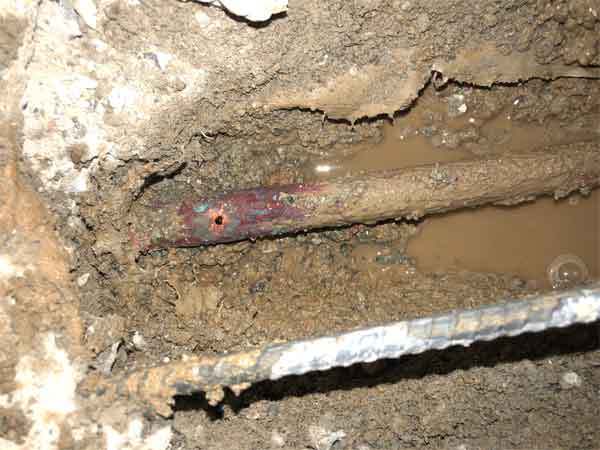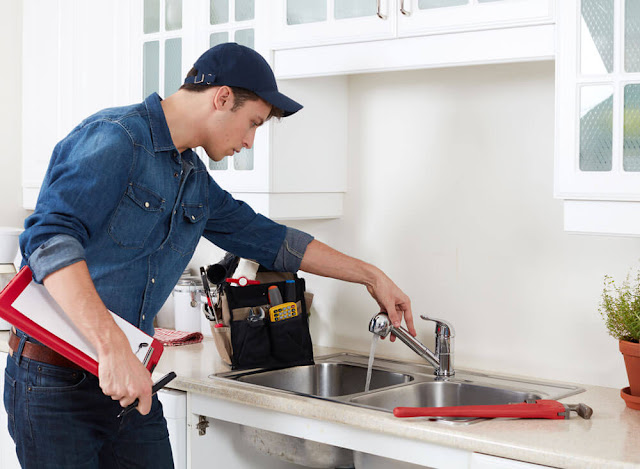The Perils of a Slab Leak and How to Avoid Them
Slab leaks are one of the most serious and expensive problems a homeowner can face. A slab leak occurs when water leaks through the concrete foundation of a home, causing extensive damage to the structure. Slab leaks can be caused by a variety of factors, including faulty plumbing, seismic activity, and changes in temperature. Slab leaks are notoriously difficult to repair, and the costs can be significant. In some cases, the only solution is to completely replace the foundation. Thankfully, there are a few things homeowners can do to help prevent slab leaks from occurring in the first place.
One of the most important is to have your plumbing regularly inspected by a professional. Additionally, you should be aware of the signs of a slab leak, such as pooled water, cracks in the foundation, or an increase in your water bill. If you notice any of these signs, you should call a sab leak repair specialist immediately. By taking these precautions, you can help avoid the costly and devastating effects of a slab leak.
What is a Slab Leak?
A slab leak is a leak in the water or sewer line that runs beneath your home's foundation. Because these pipes are buried under concrete, they're very difficult to repair once they've leaked. That's why it's so important to catch a slab leak early and take steps to prevent them from happening in the first place.
What Causes Slab Leaks?
Several things can cause a slab leak, but the most common is corrosion. As water pipes age, they can start to corrode from the inside out. This can cause small holes or cracks to form in the pipe, which will eventually lead to a leak.
Another common cause of slab leaks is movement in the foundation. As your home settles, it can put stress on the water and sewer lines, causing them to crack or break. This is especially common in homes with clay soil, which expands and contracts as the moisture content changes.
What are the Signs of a Slab Leak?
A sudden increase in your water bill: If you notice a sudden spike in your water usage, it could be a sign that you leak.
Water stains on your ceilings or walls: If you see water stains on your ceilings or walls, it's a good indication that you leak into your home.
The sound of running water: If you hear the sound of running water when no one is using the taps, it's a good sign that you are leaking.
Mold or Mildew: If you see mold or mildew growing in your home, it could be a sign of a leak.
What are the Consequences of a Slab Leak?
If left unchecked, slab leaks can cause serious damage to your home. They can weaken the foundation, cause mold and mildew to grow, and lead to flooding. In extreme cases, they can even cause the ground to shift, which can damage your home's structure.
How Can I Prevent Slab Leaks?
Inspect your home regularly: Check for water stains on your ceilings or walls and listen for the sound of running water. If you notice anything out of the ordinary, contact a 24-hour plumber immediately.
Check your pipes regularly: Have your pipes checked regularly by a professional to ensure they're in good condition.
Repair any leaks immediately: If you do have a leak, it's important to repair it as soon as possible to prevent further damage.
Maintain your home's foundation: Keep an eye on your home's foundation and have any cracks repaired immediately.
If you think you may have a slab leak, don't ignore it. Contact a professional immediately to assess the situation and take care of the problem. Ignoring a slab leak will only make the problem worse and put your home at risk.
Conclusion paragraph:
If you are experiencing water damage in your home, it is important to take action quickly. Not only can the water damage be costly to repair, but it can also lead to health hazards if not addressed promptly. The best way to avoid these problems is by getting regular maintenance checks on your plumbing system and by being vigilant about any potential signs of a slab leak. Contact EZ PLUMBING USA today for more information or to schedule an appointment. We would be happy to help you keep your home safe from water damage.
Author Bio:- Josephine Floyd
Josephine Floyd is a marketing head at EZ PLUMBING USA. He is an experienced marketing leader with over 12 years of experience in the plumbing industry. With extensive knowledge of severe water damage, mold damage, and fire damage, as well as general plumbing services, he writes articles about water and flood damage repair and restoration along with heating installation, maintenance, and repair to make readers aware of the potential risk and quick actions they can take to reduce damage. Keep reading his latest articles to have an understanding of whether your plumbing system is intact or not; if not, what you should do to fix it.




Comments
Post a Comment